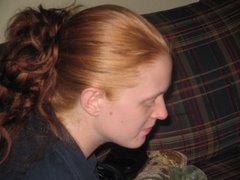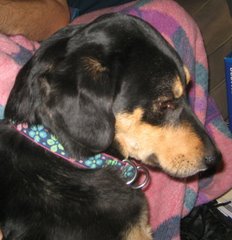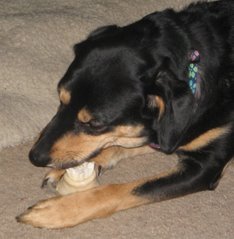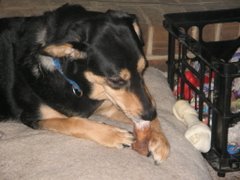Now, I would like to post my own recommendations for anyone coming off Kimkins or just looking into a low carb plan.
1. For the next month or so don't count calories, and don't worry about weight gain or loss. You weight may fluctuate wildly for a while and you need to be prepared so you won't get discouraged. Don't count calories as they will likely regulate themselves and can always be cut back later if necessary. During this time start researching and reading about the different plans.
2. First, cut out all "whites". White flour, rice, sugar, potatoes, etc and all items made with them. So, no white breads, rolls, etc. No potatoes of any kind....and that includes baked as well as fried. No sugar. If you must have sweet, find an acceptable artificial sweetener (AS) and make/buy drinks that contain it. Observe your reactions to the foods you eat, noting especially how soon after eating you get hungry.
3. Start eating 3 regular meals a day with small high protein low carb snacks if needed. Cheese is a great choice for snacks, but many say eating it can lead to a stall. At this point, don’t worry so much about counting things, just eat natural unprocessed foods. If you do used processed foods, choose the one with the best ingredients. You should be eating enough at each meal so you are satisfied, but not overly full. The amount you eat should last until the next meal, although initially you may need snacks to hold you over. If you're used to very low calorie or tight portion control be open to having more than one serving of your protein/fat source. You should never leave the table hungry!
4. Start reading labels. You’ll want to start reading labels on any processed foods you buy or consider buying. Look for the least processed and best ingredients. For example, if you need salsa check out the carb counts and the ingredients. Buy the one that is lower carb especially if it's more natural. Dairy is also a good example. Fat free American cheese contains no fat, but 4 grams carbohydrate per ounce, while full fat cheese contains only 2 grams. Sour cream too....fat free, no fat, but 40 grams of carb per cup while full fat contains only 10 grams per cup. Watch ingredients too. If something says it has no trans-fat, or "0% trans-fat", check the label. Look for “hydrogenated” in the ingredients listing. If that word is there, it's very likely that the food contains at least some trans-fat, but by law can be listed as 0 if it's less than 0.5 grams.
5. Start reading up on low carb plans. There is a ton of information on the web and there are many plans to choose from. Go to your local library or bookstore and read a bit of the plans and see which one you can live with. If, for example, you like to have convenience foods, including frozen meals on hand for quick and easy meals, South Beach might be a better choice than Atkins or Protein Power. Each plan has it's specifics about how much fat, protein, and carb you should eat as well as what kind of foods they come from.
6. Once you decide on a plan, read the book. Front to back, at least once. Take notes or highlight text if you can. But really read the book. Pay attention to the science behind each of the author's points. Does what the author say make sense? Check the claims by searching online and verify facts when you can.
7. When you start on your plan you should follow it as closely as you can. For the first 2 weeks, minimum, do what the plan tells you. If it says to have as much green veggies as you want, then have it. If it tells you to limit something or increase something, then do it. Give yourself a month to decide if this is the right plan for you. Be sure to include exercise in your plan. Resistance training is felt to be more beneficial than cardio by many, but anything that you enjoy is fine.
8. Prepare to record everything you eat as accurately as possible. FitDay.com is an excellent product and is available online for free. If you really want to be accurate, measure and weigh everything you eat or drink. Record any exercise too. Check your weight and measurements and decide on a goal. Write this all down, or record in an online product. (SparkPeople.com is also an excellent free site that has a place to record food, exercise, goals, etc and also features support forums and teams as well as recipes and articles.)
9. Set a start date and de-carb your house. Remove as many of the "unacceptable" foods as you are able to. If you have family that you live with, be sure to get their buy in and agreements to work with you and your plan. At this time, if you haven't already, it would also be a good idea to talk to your doctor and get some baseline blood work done. If you are on any medications you may need your doc's assistance in changing dose as you loose weight. Getting baseline blood work is great to compare to additional work done later.
10. When following your plan, continue to learn more about diet and nutrition. Follow the research, but question anything in the mainstream media. Check out my links to blogs and web sites if you need a place to start!
11. Tweak your plan, after at least 2 weeks of following your plan exactly. If you don't like a certain aspect of your diet then change it. If you prefer meat over veggies it's not likely to cause you problems as long as the meat you eat is unprocessed and the veggies are good quality and as natural as possible. If you're not loosing enough and feel your carb intake is a bit too high, then lower it a bit. And if there is a food that you really miss see if there is any way to incorporate it or a substitute once in a while.
Following low carb may not be for everyone, but for the majority of us it is beneficial and results in lower blood sugar and insulin levels, lower blood pressure and usually significant weight loss. If you feel you are not loosing fast enough, cut back on carbs, and also rethink your expectations. Rapid weight loss is often not sustained over the long term and can cause several physical reactions.
If you properly follow a low carb plan you must make it a life plan. Sure you can follow the plan until you loose the weight you want to loose then go back to "normal" eating....but if you do you will regain the weight you lost, no question. And, if you are going to make this a life plan, you must find one that works for you!
A friend of mine recently asked me to find a list of foods that she cannot eat. Well, unfortunately it's not that easy!! Some people can eat fruit without a problem, but I'll be plagued by cravings if I am not really careful and have adequate fat and protein along with it. On the other hand, most people experience stalls from eating foods containing sugar alcohols (SA), but they don't seem to influence my weight at all. The foods that you "can't" eat are the foods that induce cravings and early hunger.
Limits should be placed on the total number of carbs per meal and not the food. If you are allowed 15 grams per meal and you want a veggie, you have a lot of choices:
Asparagus, cooked = 2 cups
Broccoli, cooked = 1.6 cups
Cucumber = 5 cups
Romaine Lettuce = 11 cups
Corn = 1/3 cup
Brown rice = 1/2 cup (1/3 cup of white rice)
White potato = 1/2 cup
So...you have a lovely piece of roasted chicken (eat the skin!) and along with it you can have a nice salad of lettuce (2 cups), tomato (1/4 cup), cucumber (1/4 cup), and mushroom (1/4 cup), along with an ounce of shredded cheese and 2 tablespoons of full fat creamy dressing, and some broccoli on the side, all for less than 15 grams of carb...or you can have 1/2 cup of potato. If you don't like salad or you're craving potatoes, maybe eating the 1/2 cup serving will be enough. The other thing to consider, and this is highly individualised, but it's likely that the starch in the potato is going to be rapidly metabolized and you will start to feel hungry sooner than you would if you had the salad. But, it's still your choice!! That's what makes any diet doable!
Here are some of the plans I'm somewhat familiar with:
Dr Atkins New Diet Revolution. Probably the best known and most misunderstood of all the plans. You start out with very low carb, no more than 20 grams per day, then increase them after the first 2 weeks. The increase in carbs is to allow people to figure out what their "critical carb level" (CCL) is. Your CCL is the level at which you no longer loose. Drop your carbs back a bit and you should loose steadily. As you get closer to your goal you increase carbs a bit more to slow your loss and gradually transition into maintenance. With this plan the emphasis is having a high intake of fat and a low intake of carbs. You are encouraged to eat veggies and some fruit. Exercise is a part of the plan, no exceptions.
Protein Power Lifeplan. My personal favorite, although what I do now isn't exactly by the book. For Protein Power plans the emphasis is on getting a minimum of a certain level of protein and keeping carbs below a certain level (30 grams/day to start). The original plan was a bit lower in carbs than the later one, but still the emphasis is on the protein (hence the name! LOL). In the first book there was a formula to figure out your minimum protein intake, but in the later book there's a chart for you to look it up. Fat isn't really addressed except to caution to use natural fresh fats over commercial ones.
And some that I'm less familiar with:
South Beach. Basic low carb for the first 2 weeks, then fairly generous for ongoing weight loss. Emphasis is to NOT remain on the initial phase for longer than 2 weeks. (Dr A and PP plans both "allow" you to stay on the initial level longer) This plan is considered low fat to many low carbers, especially those on Atkins. The emphasis isn't so much on quantity of fat as quality. It cautions against trans-fats (just like the Dr A and PP plans), but also cautions against saturated fat. Dr Agatston is/was a cardiologist, so it makes sense that he would fear saturated fats.
Dr Bernstein's books. I've read one and was impressed, but was already doing well with PP so I've never tried any of his plans. Dr Bernstein is a diabetic, a Type 1, who basically experimented on himself, then went to medical school so he would have more credibility. Unfortunately the general media tends to ignore him. He has a lot of good things to say, and promotes a low carb diet for all diabetics.
Other books about low carb, controlled car, low sugar plans:
Paleo Diet. Basically you eat what was available to our ancestors. So meats and any fruits and veggies that can be eaten as is. No processed foods. Meat, fish, gathered or foraged fruits, leaves, and roots of plants, mushrooms, nuts, eggs, and honey...that's pretty much it.
Sugar Shock. Connie Bennett figured out she was having a reaction to eating sugar and started investigating why. Her book gives and excellent explanation of sugar addiction and reactions in the body. She also has some excellent suggestions for those just looking to kick their sugar addiction.
The Zone diet. This one is about balance. The plan is to keep your carbohydrates, protein and fat in a certain ratio: 40/30/30 to be exact. I've heard that the diet can be confusing....and also that it's fantastic.
Sugar Busters. Basically with Sugar Busters you avoid all processed carbs and carbs that are high GI (Glycemic Index), like potatoes and corn.
Check out MY LINKS to low carb sites, books, and information....and have fun!!
Tonight's Dinner:























